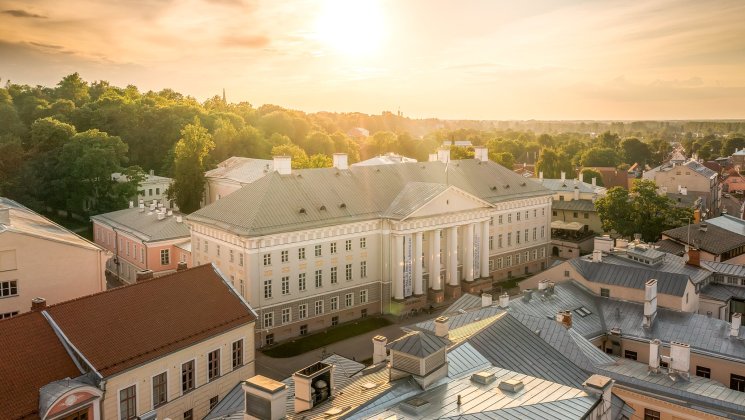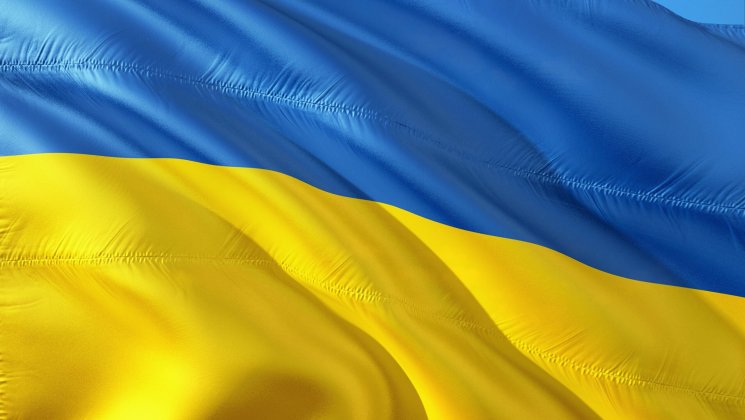Toomas Asser: Estonia's best competitive advantage and guarantee of democracy is real intelligence
Rector Toomas Asser's speech at the ceremony dedicated to the 106th anniversary of the Republic of Estonia on 23 February 2024.
Toomas Asser:
Honourable President Toomas Hendrik Ilves, dear members of the university family, dear guests!
Welcome to the ceremony celebrating the independence of Estonia!
Estonia has been working hard for the last 30 years to prevent horrors similar to what we see in Ukraine today from ever reaching our soil. After the restitution of independence, Lennart Meri set accession to NATO and the European Union as Estonia’s only possible course. It took just six years until NATO expressed its readiness for enlargement. The same year, we were invited to start accession talks with the European Union.
While the democracy-building Estonia was otherwise lagging behind the West in all other areas, the then Ambassador Toomas Hendrik Ilves realised that it was in the digital field that we had an equal starting position with others. Only eleven years after the first allocation of funds under the Tiger Leap programme, the NATO Cyber Defence Centre was established in Estonia.
We must remember that Estonia achieved these results by intentionally cultivating trust in the West and at home. Because of this trust, the world has been listening to Estonia since the Russian invasion of Ukraine. As Roberta Metsola, the President of the European Parliament who visited Estonia last week, said – Estonia knows what is at stake.
Against the backdrop of disagreements within our country, we must not forget that the biggest problem Estonia is facing today is Russia. However, while all our attention is focused on what is happening in Ukraine, we cannot ignore the changing balance of power in the world. We have just had a close encounter with the impact of Russia’s intelligence activities at the university, but we must also be vigilant about China’s global embrace. I am not talking here of robot vacuum cleaners or the TikTok platform, which the press warned people about last week in light of the recent report of the Estonian Foreign Intelligence Service. What I have in mind is new technology that is developed in universities and the opportunities for scientific cooperation here.
The universities’ situational awareness must increase considerably in this area. While the Western universities’ perception of the Russian threat is still brittle, their awareness of the technological threat is better. When I was last in Brussels, I was pleased to hear that the European Commission has also focused on the issue of scientific security. Besides new technologies, the data, methodologies and knowledge retained by universities are increasingly valuable for both researchers themselves and knowledge-based governance. It is clear that access to this information is also being pursued covertly and systematically elsewhere. As the research community is one of the most mobile groups in society, we must, to preserve this value, also recognise the security risks associated with staying abroad.
So, when we hear accusations that the requirements of data security, or cybersecurity more generally, are overblown, it is all for a good reason. In the case of social media platforms, individuals cannot know how their data are being used, how securely they are held, and whose wealth they will grow. Data entrusted to the university cannot be treated in the same way. On the other hand, we must not leave the data and knowledge at our disposal unused for fear of something, because also inactivity has consequences. For example, we need to preserve and build on the success story of Estonia’s genetic data. It is our duty to provide people with the confidence that we can safeguard the values entrusted to science and use them to benefit society. If the “not-in-my-backyard” approach evolves into a “not-with-my-data” attitude, knowledge-based governance and society will be lost, and there will be no novel solutions in healthcare and technology.
The university’s task is to create opportunities to ensure national competitiveness, but it would still be better if we could share what we create with the world. The solutions may lie in the results of our research projects that obtained the largest funding ever – the Centre for Digital Bioengineering and the Centre for Personalised Medicine – or in the work of researchers holding the ERC grants. Their potential for a breakthrough has been confirmed by a high-level panel of evaluators. Just now, when Estonia is at risk of losing foreign investors due to its geopolitical situation, we need to be very careful to keep the people who are creating the future security for us here, the people who hold the key to ensuring that a halt in economic growth would not mean a deterioration in welfare. This key also means making society more crisis-proof by exploring, for example, vulnerable groups or information warfare. Looking towards the already fragmented research budget to cover the national budget deficit or the public authorities’ modest capacity to use research funds raises the question of how well this vision is perceived by our national leaders.
I understand that never before has the government been expected to deliver as much and as quickly as now. It was not the case even in the early years of independence. But, unlike 30 years ago, we are now fortunate to have incomparably different opportunities. From the university’s perspective, there is now a good dialogue between intellect and power. So, on the Republic of Estonia’s anniversary, I would like to remind you that, in good times and in turbulent ones, our best competitive advantage and the guarantee of democracy is wisdom – I would underline – the real intelligence.
Congratulations, and smart choices for Estonia!



